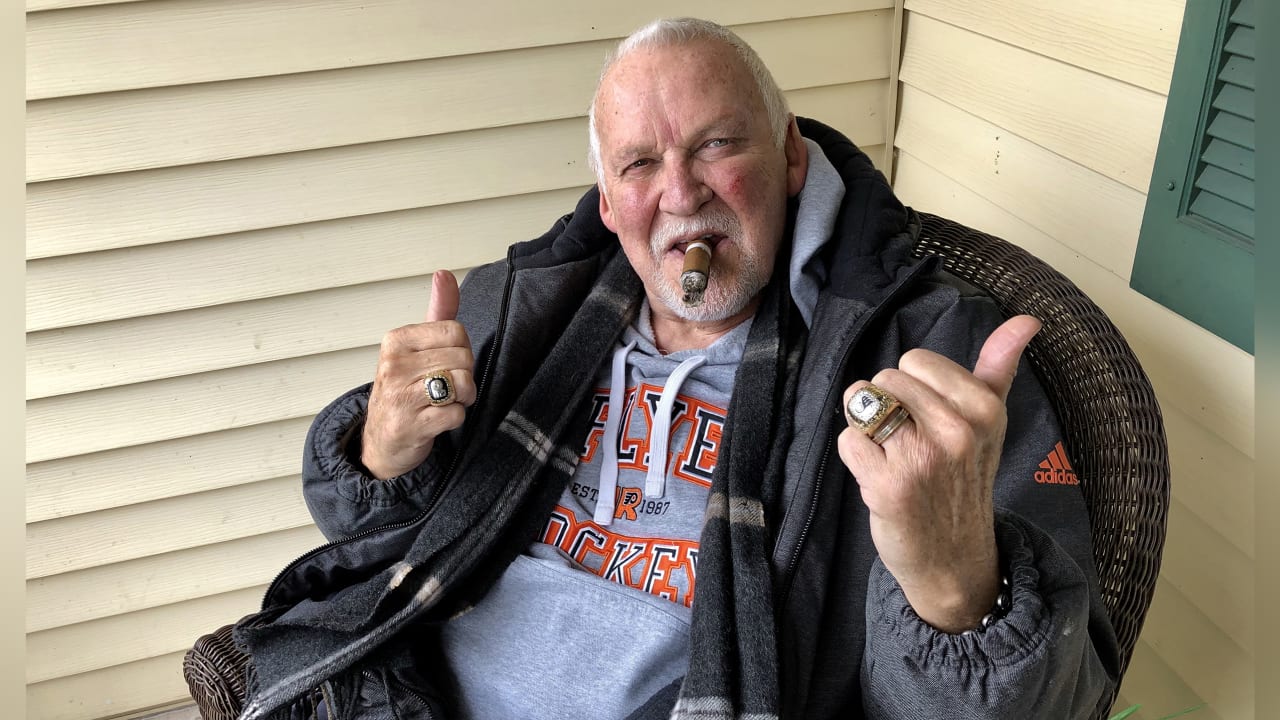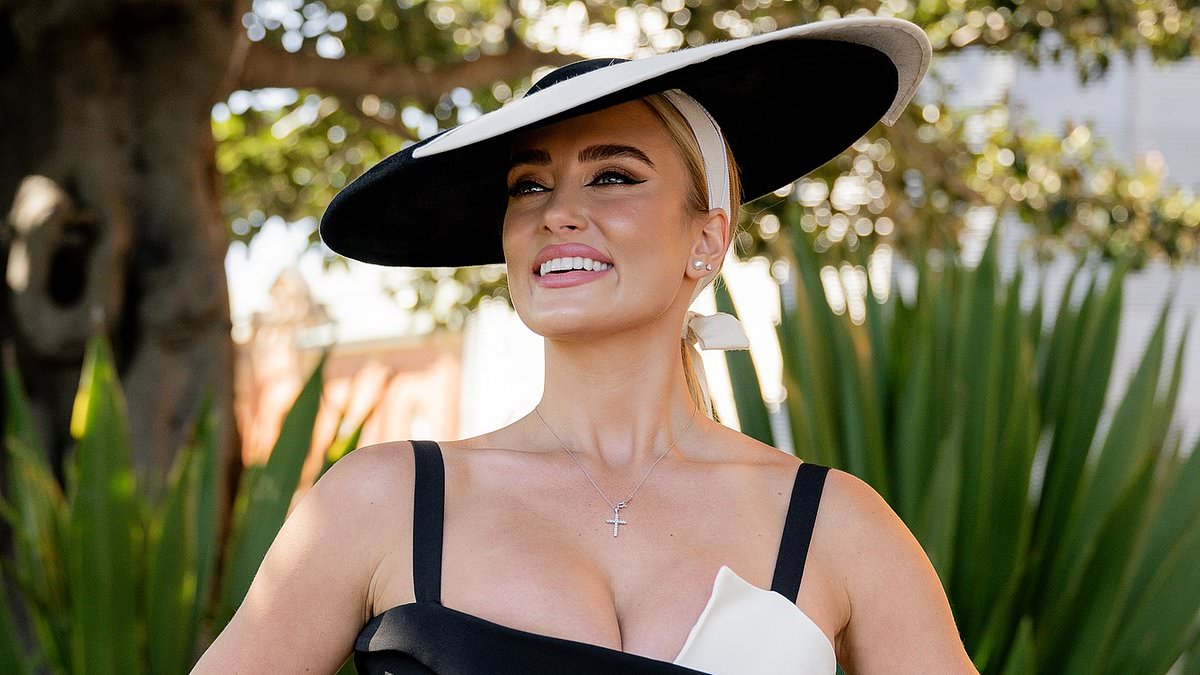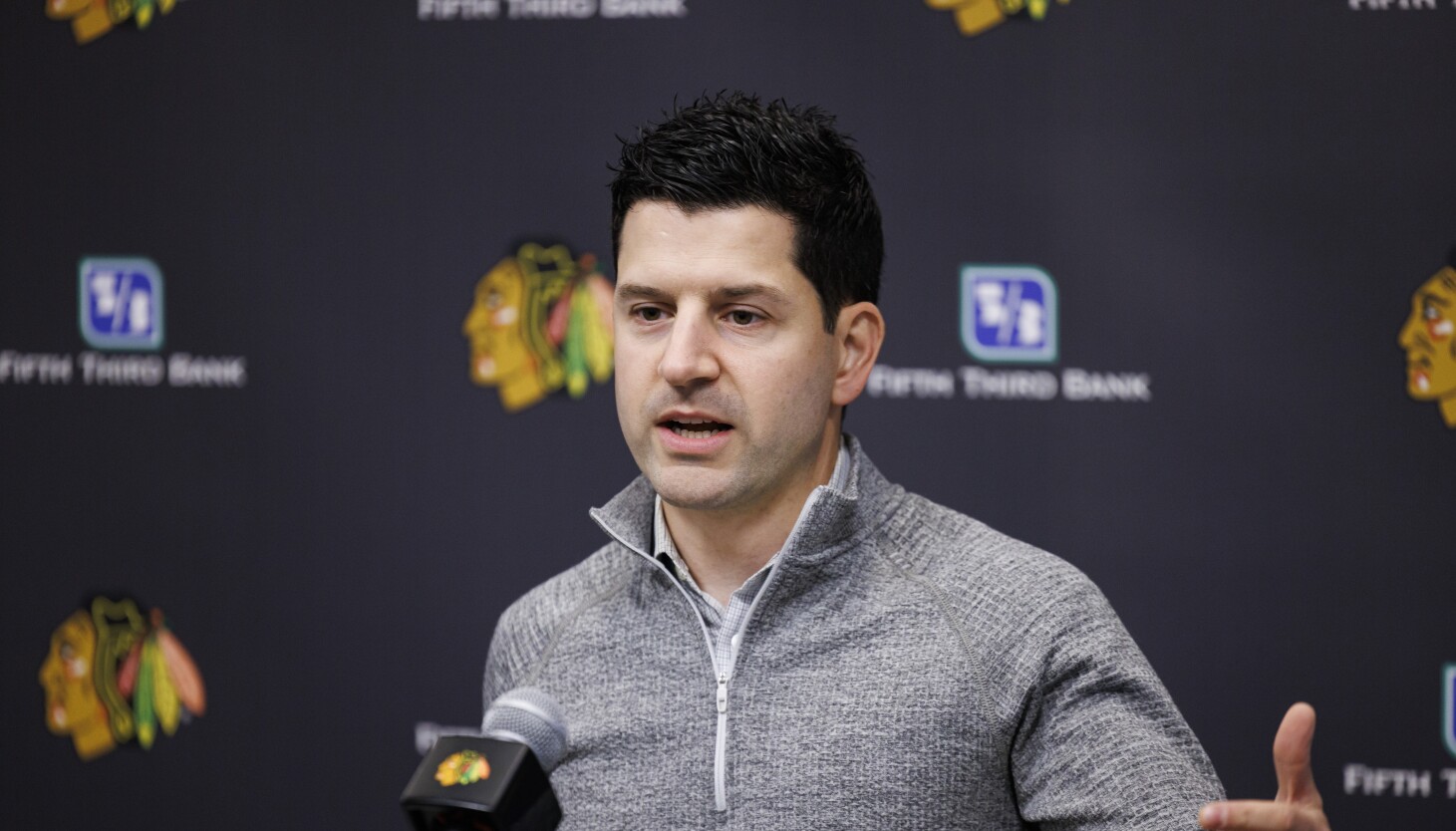
Bernie Parent’s glass was never half full.
Always, it was full to the brim, then overflowing.
One of the most popular athletes in Philadelphia sports history, and one of the most positive, effervescent spirits on that city’s landscape and far beyond, left us Saturday into Sunday, Bernie passing away in his sleep at age 80 at his home in Avalon, New Jersey.
It was the third rib-crushing punch hockey has absorbed in the past two weeks, the deaths of fellow Hockey Hall of Fame goalies Ken Dryden on Sept. 5 and Ed Giacomin on Sept. 14 now followed by that of the Flyers icon.
The dear friend I knew as “Frenchy” never said hello when I answered his call. It was always, “Hey, buddy, how ya doin’?!” and off he’d go with a stream of consciousness about the hockey story of the day, about how his weather was better than mine, or about nothing at all.
His words would always include “it’s a beautiful thing” when he discussed his life in hockey and beyond; when he talked about Gini, his wife and soulmate; when he praised his teammates and opponents alike; when he made it clear that the love of his fans was something very mutual.
To Bernie, every day was indeed a beautiful thing, thankful for every moment he shared with everyone who crossed his broad, happy orbit.
No matter how many times I heard them, always spun just a bit differently, I loved Bernie’s stories when we connected by phone, or when we sat at NHL functions in Montreal, Ottawa, Toronto, Philadelphia, Las Vegas and Los Angeles.
We somehow bonded over “The Three Stooges,” which Frenchy watched to relax before many of his games with the Philadelphia Flyers on his way to Stanley Cup championships in 1974 and 1975, each year winning the Conn Smythe Trophy voted as most valuable player of the postseason and Vezina Trophy.
Of the Stooges’ 190 Columbia shorts, our mutual favorite by far was the 1947 classic “Brideless Groom,” when Shemp had to be married by midnight to inherit late Uncle Caleb’s $500,000 fortune. Frenchy particularly loved that Shemp’s failed courtship with Miss Hopkins ended when the latter, who mistook the Stooge for her cousin, punched him through a door, breaking his nose for real.
I bought “Brideless Groom” on DVD and presented it to Bernie over breakfast during a 2017 NHL event in Las Vegas and you’d have thought I’d just given him a lifetime achievement award. Nor did he deny that Miss Hopkins’ roundhouse punch might perhaps have reminded him of the Flyers’ 1970s Broad Street Bullies.
Frenchy had come to minor-hockey goaltending in his native Montreal because he was a lousy skater, something he’d improve in time.
He worshipped the legendary Jacques Plante, by age 16 copying every move of the Montreal Canadiens superstar. Little did he know that he would be a teammate of Plante with the Toronto Maple Leafs, forever crediting the veteran for teaching him how to be a professional.
Claimed by the fledgling Flyers from the Boston Bruins in the 1967 NHL Expansion Draft, No. 2 behind the Los Angeles Kings’ selection of Terry Sawchuk from Toronto, Bernie would become a huge fan favorite in Philadelphia before he was traded to the Maple Leafs on Feb. 1, 1971.
“Sounds good,” he said when he came off a golf course to learn he’d been chosen by the Flyers. “I have just one question. Where’s Philadelphia?”
Frenchy would quickly find out. He was crushed to leave the City of Brotherly Love, but it didn’t take him long to see the upside of absorbing the wisdom of Plante, a goaltending pioneer 16 years his senior who in the twilight of his career was more than willing to be a mentor to a fellow French-Canadian.
“We had a great bunch of guys in Toronto, from Plante up to the defense and forwards like Dave Keon, a great player and a classy individual,” Frenchy said when we sat over lunch in Toronto in 2017 during the NHL’s Centennial year. “Coming here gave me a chance to play with Plante for a season and a half and it changed my whole career.
“I was going in circles in Philly. I was OK, but just an average goalie. But then from the bench, I watched Plante play and I’m thinking, ‘Man, this guy is good.'”
Plante, he said, didn’t treat the Toronto newcomer “as some young punk trying to take his job. He told me, ‘We’re on the same team and I can help you.'”
Frenchy bought a fine box of cigars and gave them to his mentor, studying him inside and out.
Bernie loved the Maple Leafs and their fans, but team owner Harold Ballard’s brusque manner and his shallow pockets were less appealing. The goalie considered a contract he was offered to be woefully inadequate, Ballard finally digging in his heels when $2,000 separated the two sides.
Finally, Frenchy left Toronto to join the upstart World Hockey Association, signing with the Miami Screaming Eagles but winding up with the Philadelphia Blazers when the Miami franchise relocated there before playing a single game.
He played one unhappy WHA season then returned to the NHL and the Maple Leafs, who owned his rights, and almost immediately was traded back to the Flyers on May 15, 1973.
Embraced by Philly fans as a returning hero, Frenchy promptly led the Flyers to their consecutive Stanley Cup championships.
“There comes a time you have to make decisions in life,” he said, then and to the end of his life preaching that message. “You take risk, and you have to face fear. Most people are willing to take the risk but when they sense fear, they back away and miss what could be a great opportunity.
“I knew what I could do in goal, having learned so much from Plante, so when the WHA called, I took the calculated risk. If I’d played it safe and stayed with the Maple Leafs, I’d not be wearing my two (Stanley Cup) rings today.
“What is fate? It’s saying yes to life. Is it scary? You’re darned right it is, but some beautiful things come out of it.”
He looked across the table at his wife and spoke about risk once more.
“Gini married a Frenchman,” he said, roaring with laughter, “and that’s the ultimate risk!”
Not quite two years later, for an NHL video feature, the League and the Hall of Fame arranged to get the Stanley Cup to Bernie for a day in Philadelphia. He’d never had a day with it, as today’s players do after a championship win.
Frenchy and Gini wouldn’t hear of me staying at a hotel. The guest room was prepared and that was non-negotiable.
From morning through evening, gritting his teeth because of a horribly aching back that was braced and being treated with heating pads, Bernie and Gini squired the Cup around town as a marvelous piece of sterling and nickel alloy show and tell.
What only a handful knew was that Frenchy was in excruciating pain from awakening at 6 a.m. until a restless 10 p.m., when he hoped the heating pad would take the daggers out of his back. He soon would be scheduled for lumbar decompression surgery, the insertion of two steel rods and a half-dozen screws expected to provide some relief.
The first stop with the Stanley Cup was St. Christopher’s Hospital for Children, kids flocking to his side. You thought you knew the meaning of courage until you saw these youngsters beaming and laughing despite what life had cruelly stacked against them, and then the quality was redefined for you.
We parked at noon-hour outside Pat’s and Geno’s, two South Philly landmarks on a damp late-winter noon-hour. And then the Stanley Cup emerged from a black van, slackening the jaws of those who had come for the legendary cheesesteaks but had now found something even more impressive on the menu.
We walked into the Pennsylvania SPCA and soon there was a small puppy sitting in the bowl of the historic trophy. You swore the little guy was proud to be there.
At Laura Sims Skate House in Cobbs Creek Park, kids enrolled in the Ed Snider Youth Hockey Foundation, a cause hugely important to Bernie, swarmed the Stanley Cup and the legend who had brought it to this community rink, dazzled by the trophy and the two boulder-sized rings an icon wore to celebrate his victories.
Almost every photo taken of Frenchy until his last day had him grinning with clenched fists facing the camera, both of those rings displayed.
The day wound down outside Wells Fargo Arena and the statue of Frenchy and Flyers captain Bobby Clarke with the Stanley Cup. Bernie parked the real thing as its base for another photo, then we settled back at the home of his mother-in-law, Teresa, for a feast and photos with family, friends and two Philadelphia policemen who dropped in unannounced, wondering why the street was jammed with traffic.
By 10 p.m., Frenchy was crashed out at home on a heating pad, dozing, beside a table where 15 hours earlier the Stanley Cup had arrived.
Bernie turned 80 on April 3, and to mark the milestone, Gini organized a surprise party attended by family and friends. She solicited video salutes from many, so I took a small Frenchy Flyers action figure to my local arena, put it in the goal crease, explained that when a goalie is truly on his game, he looks unbeatably huge to shooters … then on video slid a dozen pucks into the net past the tiny goalie who fanned on all of them.
He called to tell me that “your buddy Lord Stanley of Preston would have loved it,” proving again that my friend gave as good as he got.
We last spoke a week ago after the passing of Giacomin, and we talked at length about the New York Rangers great and about the Dryden, another of Frenchy’s contemporaries for whom he had endless respect.
The memories were bittersweet, but before we hung up, Frenchy made sure to remind me that “life’s a beautiful thing.”
The last thing he said was that he was proud his final career save came on native Quebec ice — I had slid the last puck on my arena rink carefully and slowly at his action figure, six ounces of vulcanized rubber stopping at a legend’s skates.
Top photo: Bernie Parent in Philadelphia in February 2019 with a beloved cigar and his two Stanley Cup rings.



